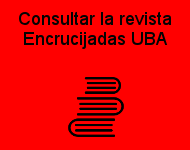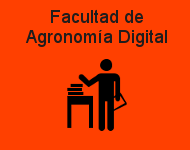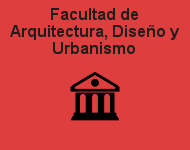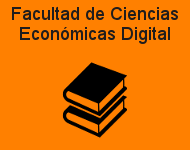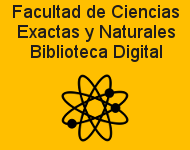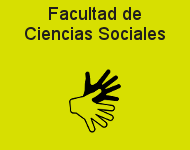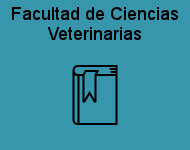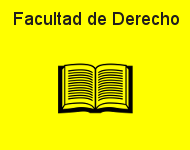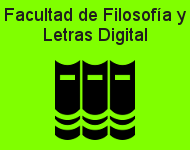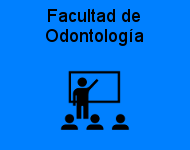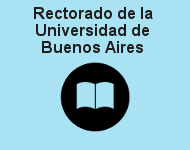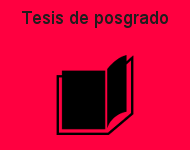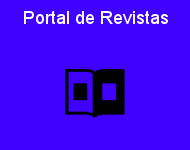Trentini, Florencia
En: RUNA, archivo para las ciencias del hombre; Vol. 32 Núm. 2 (2011); 207-209
Tipo de documento: info:eu-repo/semantics/article | Formato: application/pdf
Editor: Instituto de Ciencias Antropológicas - FFyL-UBA
Fuente: Revistas Científicas de FILO
Tanatosemiosis: communication with deceased children. Tombs, colors, epitaphs, votive offerings and memories
Bondar, César Iván
En: RUNA, archivo para las ciencias del hombre; Vol. 33 Núm. 2 (2012); 193-214
Temas: Culture - Communication - Semiosis - Angelitos - Memory - Cultura - Comunicação - Semiose - Anjos - Memória
Contenido: La denominación tanatosemiosis nace de los recorridos críticos que hemos realizado por producciones que abordan la comunicación con los difuntos (principalmente Finol y Fernández, 1996, Finol y Finol, 2009 y Bernal Botero, 2010). Este modo de aproximación será derivado a la problemática de los niños difuntos (angelitos) en dos especificidades cronotópicas: los cementerios públicos en la Provincia de Corrientes, Argentina y la (re)memoración de los niños difuntos en la Comunidad de Villa Olivari (Corrientes). La problemática abordada se centra en considerar que las prácticas funerarias vinculadas a los niños guardan especial distinción en comparación a las de los adultos. La (re)memoración, las tumbas, los epitafios y los exvotos configuran no solamente esquemas interpretativos, simbólicos y subjetivos específicos, sino además lógicas comunicativas fuertemente arraigadas en lo que Finoly Fernández(1996) han denominado la “semiótica de lo femenino”. Estos entramados comunicacionales, como configuraciones sígnicas, se (re)presentan en los rituales, colores, tumbas, epitafios y exvotos; disponiéndose sistemas tanatosemióticos específicos de creencias-hábitos. La metodología utilizada se nutre de aportes transdisciplinares devenidos de la Antropología, la Comunicación y la Semiótica. El corpus analizado fue construido sobre la base de recolecciones de primera mano entre los años 2005 y 2010.
...ver más Tipo de documento: info:eu-repo/semantics/article | Formato: application/pdf
Editor: Instituto de Ciencias Antropológicas - FFyL-UBA
Fuente: Revistas Científicas de FILO
Bayardo, Rubens
En: RUNA, archivo para las ciencias del hombre; Vol. 21 Núm. 1 (1994); 71-81
Contenido: El “off Corrientes" es un teatro organizado y solventado por los propios actores, quienes trabajan en grupos de producción cooperativa y representan sus obras en pequeñas salas situadas fuera del centro del show business teatral de la ciudad de Buenos Aires. Estos grupos postulan sus formas productivas, sus productos y su distribución, como una creación artística innovadora y alternativa con respecto a las prácticas y pautas de comercialización que rigen el mercado. En este trabajo nos concentramos en algunas modalidades que asume la creación artística of dentro del campo teatral y en las distinciones que esta conforma al interior del teatro off y en relación a otras formas de la actuación. Para ello partimos de una perspectiva socio antropológica basada en las prácticas y discursos de los agentes sociales del caso. Asimismo, a En de especificar sus condiciones de producción también recuperamos algunas contribuciones de la crítica y la investigación teatral.
...ver más Tipo de documento: info:eu-repo/semantics/article | Formato: application/pdf
Editor: Instituto de Ciencias Antropológicas - FFyL-UBA
Fuente: Revistas Científicas de FILO
Basilicoy, Susana - Lupo, Silvia
En: RUNA, archivo para las ciencias del hombre; Vol. 25 Núm. 1 (2005); 7-22
Temas: egiptología - arqueología - cerámica - comparación - datación
Contenido: The datation of Tell el-Ghaba, North Sinai, Egypt, is based upon the study of the Egyptian and imported pottery within its stratigraphic context, together with other cultural material present at the site. Comparison is made with pottery coming from other sites in Egypt (Eastern Delta, Sinai and Upper Egypt) dated to the same period, and from the Levant and the Eastem Mediterranean. Historical records are considered too. The setting up of a ceramic corpus, now in progress, will let to establish definitively the datation of the site.
...ver más Tipo de documento: info:eu-repo/semantics/article | Formato: application/pdf
Editor: Instituto de Ciencias Antropológicas - FFyL-UBA
Fuente: Revistas Científicas de FILO
Armillas, Pedro
En: RUNA, archivo para las ciencias del hombre; Vol. 3 (1950)
Tipo de documento: info:eu-repo/semantics/article | Formato: application/pdf
Editor: Instituto de Ciencias Antropológicas - FFyL-UBA
Fuente: Revistas Científicas de FILO
Burucúa, José Emilio
En: RUNA, archivo para las ciencias del hombre; Vol. 22 Núm. 1 (1995); 105-117
Tipo de documento: info:eu-repo/semantics/article | Formato: application/pdf
Editor: Instituto de Ciencias Antropológicas - FFyL-UBA
Fuente: Revistas Científicas de FILO
El mundo financiero como objeto antropológico
Gaggioli, Naymé N.
En: RUNA, archivo para las ciencias del hombre; Vol. 35 Núm. 1 (2014); 41-60
Temas: anthropology - ethnography - economy - markets - finance - antropología - etnografía - economía - mercados - finanzas - Antropologia - Etnografia - Economia - Mercados - Finanças
Contenido: This article presents existing approaches in Anthropology that have paved the way for the research of a contemporary significant object of study: the field of financial markets. The paper explores some of the most salient socio-cultural research leading to the conception of Social Studies of Finance, and presents some key contributions of these anthropological and sociological studies that challenge and present an alternative to the neoclassical approach. With their attention to detail, diversity and local specificities, this paper argues that anthropological knowledge can provide a unique understanding of the complex contemporary financial world, by which drawing attention to the diversity of forms taken by institutions, actors and practices that constitute the financial markets, particularly analyzing the specificity of local conditions in which these are developed.
...ver más Tipo de documento: info:eu-repo/semantics/article | Formato: application/pdf
Editor: Instituto de Ciencias Antropológicas - FFyL-UBA
Fuente: Revistas Científicas de FILO
Prácticas de circulación coactiva de niños y niñas en la Argentina. Tramas institucionales, jerarquías sociales y derechos
Villalta, Carla - Gesteira, Soledad
En: RUNA, archivo para las ciencias del hombre; Vol. 40 Núm. 2 (2019): Dossier: “Entre experiencias y tramas institucionales. Niños, niñas, adolescentes y familias”
Temas: Appropriation of children - Power networks - Activism - Identity - Rights - Apropiación de niños - Tramas de poder - Activismo - Identidad - Derechos - Apropriação de crianças - Redes de poder - Ativismo - Identidade - Direitos
Contenido: This article analyzes the social and institutional frames in which the «practices of coercive circulation of children» and the meanings that currently surround them were established. From the reconstruction of a case, that happened in 1976 in a spot of the Argentine Patagonia but only known in 2015, we are interested in problematizing the mechanisms that made possible the practices of forced transfer of children and their concealment over time. At the same time, we analyze the construction of a particular grid of intelligibility based on the right to identity as well as on the new meanings assigned to children. This grid, which allowed a suspicion to become first a public denunciation and later a judicial cause, was built using a categorical, institutional and activist repertoire related to human rights in Argentina that conferred specific local senses on the rights of children and girls
...ver más Tipo de documento: info:eu-repo/semantics/article | Formato: application/pdf
Editor: Instituto de Ciencias Antropológicas - FFyL-UBA
Fuente: Revistas Científicas de FILO
“No hay futuro en abandonar nuestra historia nuclear” Nostalgia e imaginarios desarrollistas en una discusión sobre energía nuclear en Argentina
Spivak, Ana
En: RUNA, archivo para las ciencias del hombre; Vol. 43 Núm. 2 (2022): Dossier: Antropología Biológica; 289-304
Temas: nostalgia, technoscientific imaginaries, experts, nuclear reactors, Argentina - nostalgia, imaginarios tecnocientíficos, expertos, reactores nucleares, Argentina - nostalgia, imaginários tecnocientíficos, especialistas, reatores nucleares, Argentina
Contenido: In 2014 Argentina signed an agreement with China to build new nuclear reactors in the country. Relate to that agreement, it was planned the construction, in charge of a local firm, of a CANDU reactor. This choice generated consensus among nuclear experts due to local experience in handling this technology and its fuel. However, after the economic and financial crisis of 2018, that technological option was displaced by the decision to buy a reactor of different technology. Nuclear experts questioned that decision arguing against the discontinuity of the technological pattern in Argentina. This text analyzes, first, what arguments about nuclear development in Argentina articulate the current discussion and how they connect past and present and, second, what is enact by using the past in this specific discussion about reactors.
...ver más Tipo de documento: info:eu-repo/semantics/article | Formato: application/pdf
Editor: Instituto de Ciencias Antropológicas - FFyL-UBA
Fuente: Revistas Científicas de FILO
“O feiticeiro não é gente”: considerações para pensar o conjunto multiétnico xinguano a partir da feitiçaria e do parentesco
Vanzolini, Marina
En: RUNA, archivo para las ciencias del hombre; Vol. 34 Núm. 2 (2013); 215-232
Temas: Upper Xingu - Aweti - Sorcery - Shamanism - Amerindian Politics - Alto Xingu - Aweti - Hechicería - Chamanismo - Política Amerindia - Alto Xingu - Aweti - Feitiçaria - Xamanismo - Política Ameríndia
Contenido: The article analyzes the sociopolitical dynamics of the xinguano multiethnic system, located in central-west Brazil, drawing from the logics revealed by sorcery practices. Based on fieldwork with the Aweti, a Tupi xinguano group, the analysis of this logic enables a description of the xinguano sociocultural unity and of the groups that constitute it not only as historical products —something that has already been shown by the region’s ethnology— but also as continuously historical products, always to be recreated. The article’s key argument is that sorcery is the dark side, the unwanted effect of the process of becoming kin, a process central to the constitution of xinguano identity. Thus, sorcery would be what makes the xinguano people never seem perfectly xinguanos/humans to themselves.
...ver más Tipo de documento: info:eu-repo/semantics/article | Formato: application/pdf
Editor: Instituto de Ciencias Antropológicas - FFyL-UBA
Fuente: Revistas Científicas de FILO
“Las taperas hacen que no podamos olvidar el desalojo”. Memorias de expropiación territorial en Boquete Nahuelpan
Fiori, Ayelen
En: RUNA, archivo para las ciencias del hombre; Vol. 40 Núm. 1 (2019); 101-112
Temas: Territorial expropriation - Mapuche tehuelche people - Memories - taperas - Boquete Nahuelpan - Expropiación territorial - Pueblo mapuche tehuelche - Memorias - Taperas - Boquete Nahuelpan - Expropriação Territorial - Pessoas mapuche tehuelche - Memorias - Taperas - Boquete Nahuelpan
Contenido: The article analyzes, from an ethnographic perspective, the relations between memory and territory through the reconstruction of stories of Mapuche Tehuelche families who were violently expelled from Boquete Nahuelpan (Chubut) in 1937. This writing is based on first results of the fieldwork that I have being doing during the last two years, by tours to the expropriated lands as well as interviews to some of the families involved in the eviction. I intend to inquire the meaning that certain places such as the “taperas” and old paths acquire in the memory of the interviewees, preventing forgetfulness and challenging the limits established by fences.
...ver más Tipo de documento: info:eu-repo/semantics/article | Formato: application/pdf
Editor: Instituto de Ciencias Antropológicas - FFyL-UBA
Fuente: Revistas Científicas de FILO
Cardoso de Oliveira, Roberto
En: RUNA, archivo para las ciencias del hombre; Vol. 14 (1984)
Tipo de documento: info:eu-repo/semantics/article | Formato: application/pdf
Editor: Instituto de Ciencias Antropológicas - FFyL-UBA
Fuente: Revistas Científicas de FILO
“You have to interview him now because they’re going to kill him”
Pérez Mena, Daniel - Sánchez, Francisco J.
En: RUNA, archivo para las ciencias del hombre; Vol. 42 Núm. 1 (2021): Cuestiones, dilemas y desafíos metodológicos en investigaciones sobre seguridad pública, violencia(s) y activismos; 139-157
Temas: qualitative research - police violence - transparency - reflexivity - Venezuela - investigación cualitativa - violencia policial - transparencia - reflexividad - Venezuela - pesquisa qualitativa - violência policial - transparência - reflexividade - Venezuela
Contenido: Este artículo pretende resumir algunas consideraciones epistemológicas y metodológicas que hemos precisado tras investigar fenómenos asociados a la violencia estructural y armada en contextos de exclusión social y precariedad. Específicamente, en estas investigaciones nos hemos aproximado a dichos fenómenos desde un paradigma constructivista y utilizando diversas metodologías que se ubican dentro del enfoque metodológico cualitativo; por tanto, nuestras apreciaciones se encuentran cimentadas en dichos posicionamientos y orientadas, específicamente, al desarrollo de la construcción de conocimientos en torno a la violencia policial en Caracas, Venezuela. De esta manera, contextualizamos el uso de conceptos cualitativistas como la reflexividad, la transparencia y el “dar voz al otro”, en las prácticas investigativas en torno a dichos fenómenos.
...ver más Tipo de documento: info:eu-repo/semantics/article | Formato: application/pdf
Editor: Instituto de Ciencias Antropológicas - FFyL-UBA
Fuente: Revistas Científicas de FILO
Fundar, gobernar y rezar. Una aproximación a los vínculos entre sociedad, política y religión en el Jujuy colonial (1656-1776)
Estruch, Dolores
En: RUNA, archivo para las ciencias del hombre; Vol. 30 Núm. 1 (2009); 45-60
Temas: Power - Religion - Colonial Jujuy - Politics - Society - Poder - Religión - Jujuy colonial - Política - Sociedad - Poder - Religião - Jujuy colonial - Política - Sociedade
Contenido: This article analyzes the links between religion, politics and colonial society, and explores the nature of these relations in the concrete practices of the members of the Santísimo Sacramento brotherhood of colonial Jujuy. We focus on the process of construction and legitimation of power, from a perspective that takes into account the interconnections between the sociopolitical and religious dimensions.
...ver más Tipo de documento: info:eu-repo/semantics/article | Formato: application/pdf
Editor: Instituto de Ciencias Antropológicas - FFyL-UBA
Fuente: Revistas Científicas de FILO
Soler, Carolina
En: RUNA, archivo para las ciencias del hombre; Vol. 32 Núm. 2 (2011); 203-205
Tipo de documento: info:eu-repo/semantics/article | Formato: application/pdf
Editor: Instituto de Ciencias Antropológicas - FFyL-UBA
Fuente: Revistas Científicas de FILO
Hacer Creer. Estrategias narrativas en testimonios de los últimos ranqueles
Karrer, Wolfgang
En: RUNA, archivo para las ciencias del hombre; Vol. 30 Núm. 2 (2009); 103-118
Temas: Ranquel People - Narration - Repetition - Make-Belief - La Pampa - Ranquel Pueblo - Narración - Repetición - Hacer Creer - La Pampa - Ranquel Povo - Narração - Repetição - Fazer Crer - La Pampa
Contenido: In this article I propose to analyze the narrations and conversations collected by Ana Fernández Garay (2002) as performances of bilingual narrators from the province of La Pampa (Argentina). The texts show a certain decline of the Ranquel, a variety of the Mapuche language. The few linguistic means and continuous code-switching do not seem to leave much room for make-belief techniques in the stories told. Nor do they seem to be necessary between sisters or spouses, for instance. Three myths, eight animal stories, sixteen monologues and another eight conversations about events in the past will allow a comparative analysis of the narrative strategies of make-belief in these texts. By comparing fictional stories (epew) with historical narratives (ngütram) I identify certain widespread strategies of make-belief (especially repetition). I relate these results to theories of belief as possible knowledge, as elaborated by María Inés Palleiro and her group of investigations (2008).
...ver más Tipo de documento: info:eu-repo/semantics/article | Formato: application/pdf
Editor: Instituto de Ciencias Antropológicas - FFyL-UBA
Fuente: Revistas Científicas de FILO
“Para no trabajar de sol a sol”. Los sentidos de la educación en jóvenes y adultos/as integrantes de familias migrantes bolivianas hortícolas del Gran La Plata, Buenos Aires, Argentina
Lemmi, Soledad - Morzilli, Melina - Moretto, Ornella
En: RUNA, archivo para las ciencias del hombre; Vol. 39 Núm. 2 (2018)
Temas: Education - Horticulturists - Migrants - Bolivians - Argentina - Educación - Horticultores - Migrantes - Bolivianos - Argentina - Educação - Horticultores - Migrantes - Bolivianos - Argentina
Contenido: In this work we propose to investigate about the senses that the families that produce vegetables from Gran La Plata build with regard to education. They are composed mostly of migrant adults of Bolivian origin and their Bolivian and Argentine children. In this sense we will address the significance that they give to schooling both in cases of adults who decide to resume their primary and secondary education and of young people who are going through secondary school. Likewise, we analyze the strategies that they put into play to complete schooling according to these senses. The information was gathered from a qualitative methodology based on ethnographic work. We advance here the senses acquired by education for these families, both of adults and young people, as a strategy of extra-fifth sociability as well as a future possibility of improving their material conditions of life.
...ver más Tipo de documento: info:eu-repo/semantics/article | Formato: application/pdf
Editor: Instituto de Ciencias Antropológicas - FFyL-UBA
Fuente: Revistas Científicas de FILO
Vidal de Battini, Berta Elena
En: RUNA, archivo para las ciencias del hombre; Vol. 13 Núm. 1-2 (1981)
Tipo de documento: info:eu-repo/semantics/article | Formato: application/pdf
Editor: Instituto de Ciencias Antropológicas - FFyL-UBA
Fuente: Revistas Científicas de FILO
“Al Maestro con cariño”
Ratier, Hugo - Pagano, María Inés
En: RUNA, archivo para las ciencias del hombre; Vol. 43 Núm. 3 (2022): Número Especial 70 Aniversario; 581-588
Temas: Master - Difference - Anthropology - Carybé - Trip - Maestro - Diferencia - Antropología - Carybé - Viaje - Mestre - Diferença - Antropologia - Carybé - Viagem
Contenido: We present an approach to the trajectory of Hugo Ratier, based on a personal encounter in which we highlight his experiences and share how they brought him closer to the Anthropology that he later practiced and transmitted. This brief journey begins with my meeting as a student and then a member of one of the research teams led by Hugo, whom I consider a master. He continues to evoke his proximity and experience —since he was a child— with difference, and there his uncle Carybé appears as a central figure. We end this presentation with a selection of excerpts taken from the field notebooks he wrote during the trip he undertook in 1956 —when he was not yet a qualified anthropologist— to San Salvador de Bahía (Brazil), based on his interest in Afro-Brazilian religions.
...ver más Tipo de documento: info:eu-repo/semantics/article | Formato: application/pdf
Editor: Instituto de Ciencias Antropológicas - FFyL-UBA
Fuente: Revistas Científicas de FILO
Tramoya o vocación
Salvadé, Romina
En: RUNA, archivo para las ciencias del hombre; Vol 44 No 2 (2023): Antropología de lo público; 137-154
Temas: Emblematization - Nonprofit - Public - Private - Politics - Emblematización - No lucrativo - Público - Privado - Política - Emblematização - Sem fins lucrativos - Público - Privado - Política
Contenido: The work proposes the category of the public as an axis to anthropologically analyze the way in which the denial of interest is emblematized in organizations that are defined as non-profit and whose tasks are oriented towards the public good. The native perspective of those who invoke the non-profit is recovered, understood as renouncing private profit in favor of the common good, to analyze how it operates on participation in public life from these organizations. From this analysis it is revealed that the native opposition between “tramoya” and “vocation” is key to understanding what model of the public is reflected behind the invocation of the non-profit. The empirical cut includes different non-profit organizations in the city of Olavarría, province of Buenos Aires, during the period 2013-2020. The analysis material is made up of ethnographic interviews, observation records and material recovered from different local media.
...ver más Tipo de documento: info:eu-repo/semantics/article | Formato: application/pdf
Editor: Instituto de Ciencias Antropológicas - FFyL-UBA
Fuente: Revistas Científicas de FILO
Armadilhas da hipervisibilidade na era digital
Beleli, Iara
En: RUNA, archivo para las ciencias del hombre; Vol. 43 Núm. 1 (2022): Debates actuales en torno a la educación y la diversidad cultural en América Latina; 347-361
Temas: Digital Media - Gender - Differences - Consumption - Seek partners - Mídias Digitales - Género - Diferencias - Consumo - Búsqueda de parejas - Mídias Digitais - Gênero - Diferenças - Consumo - Busca de parceiros
Contenido: Este artículo propone una reflexión sobre la búsqueda de parejas en sitios web y en Tinder. La investigación se centró en mujeres de entre 30 y 45 años que buscan parejas por estos medios. Todas tienen educación superior, viven en la ciudad de San Pablo, y la gran mayoría se declara como de clase media, “blancas” y heterosexuales. La pregunta orientadora de este trabajo es si, y cómo, la utilización de las nuevas tecnologías de comunicación ha cambiado la búsqueda de parejas, prestando particular atención a los filtros que hacen que un candidato sea elegible. Esos filtros articulan diferencias de género, raza, ubicación. A eso se agregan las "cosas" que componen la imagen –muebles, tamaño de la habitación, ropa, etc.–, de manera que los bienes y el consumo están entrelazados estratégicamente no solo para presentarse al otro, sino también como una forma de reconocimiento social.
...ver más Tipo de documento: info:eu-repo/semantics/article | Formato: application/pdf
Editor: Instituto de Ciencias Antropológicas - FFyL-UBA
Fuente: Revistas Científicas de FILO
Redistributive transactions and political patronage in the parliamentary bureaucracy missionary
Ebenau, Laura Andrea
En: RUNA, archivo para las ciencias del hombre; Vol. 33 Núm. 1 (2012); 33-51
Temas: Redistributive Transactions - Political Patronage - Bureaucratic Field - Camera of Representatives - Misiones - Transacciones Redistributivas - Clientelismo Político - Campo Burocrático - Cámara de Diputados - Misiones - Transações de Redistribuição - Relações Clientelistas - Campo Burocrático - Câmara de Representantes - Misiones
Contenido: En el presente artículo analizo la relación entre las transacciones redistributivas, que definen los mecanismos de asignación de recursos, y el problema de la producción y reproducción de relaciones clientelares, en un ámbito particular dentro de lo que Bourdieu (1997) delimitó como “campo burocrático”.Precisamente, me sitúo en la Cámara de Representantes de Misiones para explorar dos aspectos del problema: el primero, referido a la cuestión formal de la asignación de recursos y los mecanismos informales en los que participan los agentes. Para considerar luego la forma en que dichos mecanismos contribuyen al mantenimiento de relaciones clientelares.La descripción etnográfica y la caracterización de estas relaciones aportó elementos para incluir una dimensión escasamente explorada en los estudios sobre clientelismo político: la oferta de trabajo en las transacciones encuadradas en las estructuras burocráticas.
...ver más Tipo de documento: info:eu-repo/semantics/article | Formato: application/pdf
Editor: Instituto de Ciencias Antropológicas - FFyL-UBA
Fuente: Revistas Científicas de FILO
Investigaciones de psiquiatría transcultural entre los aborígenes maskoy del Chaco boreal
Pagés Larraya, Fernando
En: RUNA, archivo para las ciencias del hombre; Vol. 13 Núm. 1-2 (1981)
Contenido: This investigation aims at a psychiatric research in the context of an analysis of contemporary culture among the ethnical Maskoy group in Northern Chaco. This group is composed of four tribes of different culture: the Lengua-Maskoy, the Angaité, the Sanapaná and the Kashkihá.Among other discoveries, in this investigation we verify the importance of madness for the hermeneutics of culture.The apparent increase of mental diseases among the Maskoy, which has been pointed out by different authors, is also analyzed, as well as the importance —in order to explain this phenomenon— of the cultural changes which have taken place in the ethnic group of the Maskoy and which have brought about the abolition of ancient tribal practices.In order to place the Maskoy ethnically and historically among the cultures of the "Gran Chaco" an exegesis of diverse very valuable texts has been undertaken; some of them are little known or unpublished, as those of the Mennonite priest Dietrich Lepp.
...ver más Tipo de documento: info:eu-repo/semantics/article | Formato: application/pdf
Editor: Instituto de Ciencias Antropológicas - FFyL-UBA
Fuente: Revistas Científicas de FILO
Transmission of local knowledge and material culture: Community study of textile production through Social Network Analysis
Castro, Mora
En: RUNA, archivo para las ciencias del hombre; Vol. 35 Núm. 1 (2014); 133-134
Tipo de documento: info:eu-repo/semantics/article | Formato: application/pdf
Editor: Instituto de Ciencias Antropológicas - FFyL-UBA
Fuente: Revistas Científicas de FILO
Viajar lejos para estar cerca
Gaztañaga, Julieta
En: RUNA, archivo para las ciencias del hombre; Vol. 41 Núm. 2 (2020): Dossier: Debates acerca de la Antropología del Estado y las Políticas Públicas en contextos latinoamericanos contemporáneos
Temas: State processes - Public policies - Federalism - Ethnography - Political anthropology - Procesos estatales - Políticas públicas - Federalismo - Etnografía - Antropología política - Processos estatais - Políticas públicas - Federalismo - Etnografia - Antropologia política
Contenido: This article examines the “trade and institutional missions abroad of the Central Region”. Journeys abroad were configured as a “regional” public policy within the mentioned subnational integration process, largely due to the agro-export profile of the associated provinces, along with the significant weight held by local entrepreneurs. Through focusing on the relevance attributed by "state officials" and "businessmen" to those missions, the article argues that the "success" of these journeys has little to do with their apparent (commercial) content, but more with the production of a (political) dynamic where "federalism" works as a fundamental value-in-action. In theoretical and methodological terms, the analysis is constructed from an ethnographic perspective based on the conceptual developments of political anthropology, and the anthropology of the State. In this regard it seeks to contribute to understand the ways in which various social actors participate in building up state dynamics.
...ver más Tipo de documento: info:eu-repo/semantics/article | Formato: application/pdf
Editor: Instituto de Ciencias Antropológicas - FFyL-UBA
Fuente: Revistas Científicas de FILO
Rodríguez, Nuria Macarena - Ossola, María Macarena
En: RUNA, archivo para las ciencias del hombre; Vol. 43 Núm. 1 (2022): Debates actuales en torno a la educación y la diversidad cultural en América Latina; 77-94
Temas: Indigenous Youth - School Paths - University - Permanence - Inclusion - Jóvenes Indígenas - Trayectorias escolares - Universidad - Permanencia - Inclusión - Jovens indígenas - Trajetórias educacionais - Universidades - Permanência - Inclusão
Contenido: This article presents an analysis of the inclusion-exclusion dynamics present in the educational trajectories of indigenous youth that make up the Community of University Students of Native Peoples, at the National University of Salta. The interest is in explaining how previous experiences, in formal education, permeate and condition the retention and permanence strategies that are developed at the University. In the development of work, the experiences and traces that university students bring with them from their years of schooling are recognized, not only with regard to school content, but also with regard to the construction of expectations.
...ver más Tipo de documento: info:eu-repo/semantics/article | Formato: application/pdf
Editor: Instituto de Ciencias Antropológicas - FFyL-UBA
Fuente: Revistas Científicas de FILO
Socio-educational trajectories of indigenous teachers of the Chaco center
Aliata, Soledad
En: RUNA, archivo para las ciencias del hombre; Vol. 42 Núm. 2 (2021); 211-228
Temas: Socio-educational trajectories - Indigenous teachers - Autobiographical stories - Diversity - Inequality - Trayectorias socioeducativas - Maestro/as indígenas - Relatos autobiográficos - Diversidad - Desigualdad - Trajetórias socioeducativas - Professores indígenas - Histórias autobiográficas - Diversidade - Desigualdade
Contenido: Este artículo es parte del trabajo de tesis doctoral en Antropología Social, centrada en documentar la diversidad y complejidad en las trayectorias socioeducativas de un grupo de maestros/as indígenas de la provincia del Chaco, Argentina. En el este escrito presentaremos algunas de las reflexiones del análisis de dichas trayectorias. Desde una perspectiva etnográfica, abordaremos los relatos autobiográficos de dos maestros/as indígenas articulando las trayectorias de los sujetos con ciertos procesos de diversidad y desigualdad socioeducativa de la región. Se trata de un primer acercamiento al análisis que busca destacar la perspectiva de los/as maestros/as indígenas, reflexionar acerca de distintos aspectos que emparentan y/o diferencian sus relatos y a su vez, comprender ciertos sucesos socio históricos que consideramos fundamentales para avanzar en el análisis de los procesos socioeducativos en contextos interculturales actuales.
...ver más Tipo de documento: info:eu-repo/semantics/article | Formato: application/pdf
Editor: Instituto de Ciencias Antropológicas - FFyL-UBA
Fuente: Revistas Científicas de FILO
Bórmida, Marcelo
En: RUNA, archivo para las ciencias del hombre; Vol. 7 Núm. 2 (1956)
Tipo de documento: info:eu-repo/semantics/article | Formato: application/pdf
Editor: Instituto de Ciencias Antropológicas - FFyL-UBA
Fuente: Revistas Científicas de FILO
Mendoza, Marcela
En: RUNA, archivo para las ciencias del hombre; Vol. 21 Núm. 1 (1994); 241-262
Contenido: Observación directa significa que el antropólogo está ahí, en el lugar donde se desarrolla la acción y está preparado para registrar lo que esta ocurriendo. La autora estudia técnicas antropológicas de observación directa de la conducta humana, utilizando ejemplos de su propia investigación sobre interacciones sociales infantiles en una comunidad Toba de Formosa (Argentina). E1 diseño de la investigación se inspiró en (a) estudios antropológicos sobre conducta infantil en sociedades cazadoras-recolectoras, y (b) técnicas de observación en etología humana. Se describe la técnica, se explica la clase de datos que se pueden obtener con ella, y se plantean problemas que surgen de la observación directa de hechos sociales. A partir de ejemplos tomados en situaciones de juego infantil se muestra e1 manejo cuantitativo y estadístico que permiten los datos. Como ejemplo se analizan conductas de liderazgo y agresión entre pares.
...ver más Tipo de documento: info:eu-repo/semantics/article | Formato: application/pdf
Editor: Instituto de Ciencias Antropológicas - FFyL-UBA
Fuente: Revistas Científicas de FILO
Squires, Kirsty - Roberts, Charlotte A. - Sardi, Marina Laura - Márquez-Grant, Nicholas
En: RUNA, archivo para las ciencias del hombre; Vol. 43 Núm. 2 (2022): Dossier: Antropología Biológica; 245-264
Temas: Ethics - Bioarchaeology - Publishing - Author Guidelines - Argentina - Ética - Bioarqueología - Publicaciones - Directrices para autores - Argentina
Contenido: The excavation, analysis, curation, and restitution of archaeological human remains are associated with ethical challenges that those working within archaeology and heritage management should be aware of. However, the way ethical issues are acknowledged in publications continues to be overlooked. This paper examines the ethical approval required for the publication of research on human remains in Argentina and Chile. Fourteen journals that accept bioarchaeological research papers were examined. Of the 119 bioarchaeology papers published between January 2016 and September 2021, only two (1.7%) acknowledged following ethical guidelines. None of the articles referred to ethical approval to conduct the research. While ethics committees may not be in place in some universities or curating institutions, journal publishers have an increasing responsibility to ensure research on archaeological human remains is conducted in an ethical manner. In light of these results, the present paper recommends ways in which authors may address this issue and how journal editors may strengthen their guidance relating to ethical requirements.
...ver más Tipo de documento: info:eu-repo/semantics/article | Formato: application/pdf
Editor: Instituto de Ciencias Antropológicas - FFyL-UBA
Fuente: Revistas Científicas de FILO


